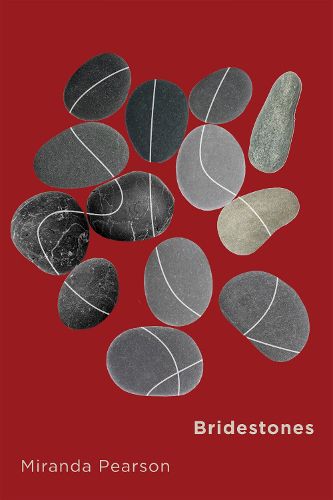Readings Newsletter
Become a Readings Member to make your shopping experience even easier.
Sign in or sign up for free!
You’re not far away from qualifying for FREE standard shipping within Australia
You’ve qualified for FREE standard shipping within Australia
The cart is loading…






Come, anguish. Help us manage / the plainsong of an open shore, / its language of high tide rich and close, / close and hard to see.
The early elegiac poems in Bridestones emerge from the borderlands between life and death, loss and renewal. Drawing on dreams, opera, and visual art, and employing symbolist and playfully surreal imagery, Miranda Pearson questions the ways we tend and grieve - for each other and our environment.
Beginning with a sudden bereavement, the first section ends with a long poem, "Clearance," that depicts the experience of emptying and departing a home - the physicality of a house serving as a vehicle for processing grief. Pearson writes on family trauma, illness, love, and desire with a pervading sense of hauntedness, compressed, lyrical accounts of complex and ambivalent terrain. The impact of a pandemic lurks in the background, and themes of fear run through much of this collection, with poems exploring how we face our fears - or deny and avoid them - and, ultimately, how we grow and adapt.
Through meditations on art, myth, archaeology, ceremony, and death, Pearson reveals the veil between life and death when drawn to its thinnest. Like the hovering falcon depicted in "A Song of Roses," the poems view the world from above: "if earth is body, and sky - God help us, spirit."
$9.00 standard shipping within Australia
FREE standard shipping within Australia for orders over $100.00
Express & International shipping calculated at checkout
Come, anguish. Help us manage / the plainsong of an open shore, / its language of high tide rich and close, / close and hard to see.
The early elegiac poems in Bridestones emerge from the borderlands between life and death, loss and renewal. Drawing on dreams, opera, and visual art, and employing symbolist and playfully surreal imagery, Miranda Pearson questions the ways we tend and grieve - for each other and our environment.
Beginning with a sudden bereavement, the first section ends with a long poem, "Clearance," that depicts the experience of emptying and departing a home - the physicality of a house serving as a vehicle for processing grief. Pearson writes on family trauma, illness, love, and desire with a pervading sense of hauntedness, compressed, lyrical accounts of complex and ambivalent terrain. The impact of a pandemic lurks in the background, and themes of fear run through much of this collection, with poems exploring how we face our fears - or deny and avoid them - and, ultimately, how we grow and adapt.
Through meditations on art, myth, archaeology, ceremony, and death, Pearson reveals the veil between life and death when drawn to its thinnest. Like the hovering falcon depicted in "A Song of Roses," the poems view the world from above: "if earth is body, and sky - God help us, spirit."